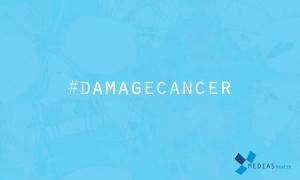Battling Cancer, Public Healthcare Protocols and Alternative Treatments
Battling cancer often involves support from family and loved ones, and it may mean seeking out new and alternative cancer treatments that can offer a lifeline.
TORONTO, CANADA, April 3, 2017 /EINPresswire.com/ -- In contribution to the #DAMAGECACNER Project, patients with stage-four metastatic cancers, who undergone Regional Chemotherapy treatment, shared their stories. Their loved ones joined in conversations. The #damagecancer Project is an ongoing initiative of Medias Health Inc.
Being diagnosed with cancer is a very dramatic experience for any individual. Battling cancer often involves support and help from family and loved ones. In some cases support may mean seeking out new and alternative cancer treatments that can provide a lifeline.
When the news of cancer diagnosis are first broken, the reality is usually hard to comprehend. When the gravity of what happened sinks in, emotions take hold. Dealing with cancer is a life-changing experience. As with any dramatic experience, one needs some time to understand what has happened and what is next. It is much easier to deal with the trauma and to control the situation when one can count on support from the family and loved ones. When battling cancer is a family business, the chances of success increase significantly.
Having spoken to many stage four cancer patients and their families, we have been learning that one of the most critical things in beating cancer is not to delay treatments. Many have shared with us that within about two-three months from the original diagnosis, they were told that due to progression of their disease, the originally proposed treatment was no longer possible. In some cases the lucky ones had a different treatment protocol offered to them. Others had to deal with the harsh reality of the words “nothing else can be offered, but palliative care”.
Establishing medical treatment protocols is critical for any healthcare system in order to provide reasonable level of care, control costs and maintain its overall viability. There are numerous factors that go into designing such protocols. Unfortunately some of those protocols, although may deliver reasonable outcomes in aggregate, do not benefit some individual patients and even sub-groups of patients.
For example, the term “best practice” may be used in defining a treatment protocol. It sounds good on the surface, as it seems to imply the best treatment option. Some of such “best practices”, unfortunately, can become outdated much earlier than the protocols are changed to accommodate new treatment methods.
New cancer treatments can be both, more effective and costly. Those that are cost-effective, on the other hand, may be so on a longer run. To be implemented, they could require new equipment and expertise, which can be prohibitively expensive immediately.
There is a lot of complexity and contradictions in healthcare in general, and in cancer treatment practices in particular. Funding and sustainability of costs are too often two of the most critical factors in assessment of new medical protocols and treatments for approval in public health systems. Unfortunately, solving for efficiency in the system, although important and needed, does not always produce the best outcomes for all participants. Some may “fall through the cracks”.
When the publicly available cancer treatments are not effective for late stage cancer patients, the patients have to have the right to look for help outside of the public healthcare system without being penalized. For Canadian cancer patients, for example, this would mean looking for alternative cancer treatments abroad, as few choices are available outside of standard protocols locally. American cancer patients have more choices than Canadians, and more alternatives are available in Europe.
Regional Chemotherapy cancer treatment is one of such alternatives. Although originally developed in the USA in the late 1950s, the most modern form of Regional Chemotherapy is available only in Germany. Medical practitioners in general, and oncologists specifically, can learn more about this unique and powerful cancer treatment method. Cancer patients and their families should learn about it, as it could be a viable alternative to help them in their battles with cancer. (www.regionalchemotherapy.com).
Contact:
Medias Health Inc. | USA & Canada: 1-888-896-0251 | International: +1-647-986-5977
info@mediashealth.com www.mediashealth.com www.facebook.com/mediashealth @mediashealth
___________________
Medias Health Inc.
1-888-896-0251
email us here

